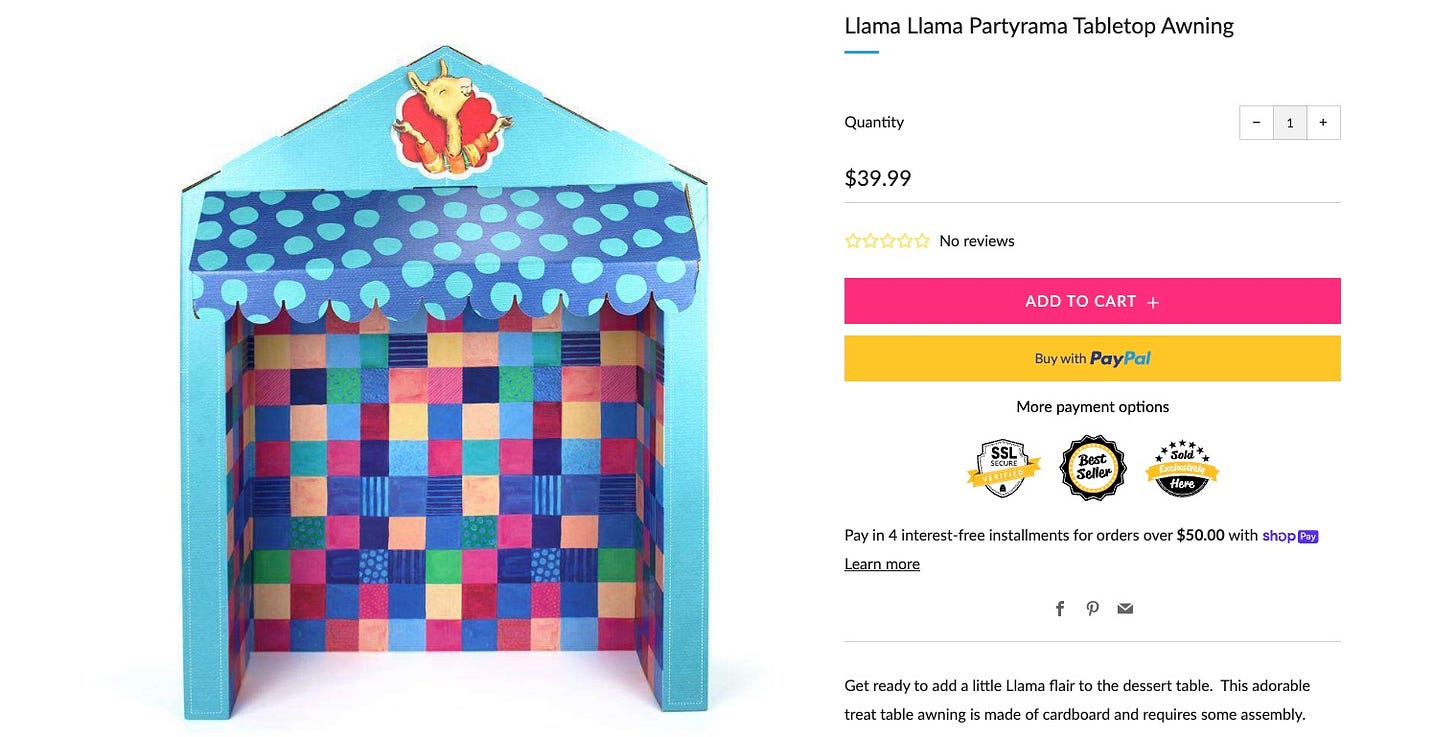Llama Llama Red Pajama by Ana Dewdney has the distinction of being the only children’s book I’ve discovered through a Migos freestyle.
The first hint to this book’s appeal is the ease with which Quavo, Offset, and Takeoff (RIP) slide into extended, collaborative riffing on the core, titular refrain. Say it aloud to yourself. “Llama llama red pajama.” Try NOT to bop a little bit. I dare you.
Impossible right?
That’s because Anna Dewdney wrote an unmitigated banger, and while this book unfurls in an uncomplicated way, important themes lurk below the fun facade. The PJ-clad llama in this story can’t go to sleep … despite being dressed for the occasion, in bed, in the dark, and clutching a tiny simulacrum of himself. Mama llama, meanwhile, is pressed. She’s doing dishes, answering the phone, basically handling an array of post-bedtime tasks that - reading between the lines - probably went ignored while catering to this needy llama child during the day. As mama tries to handle business, baby llama spirals, ultimately ideating his mother’s disappearance and erupting into a full tantrum. Mama puts down everything she’s doing and rushes upstairs to soothe baby, who finally manages to sleep.
The fun in this book - which is now a series of books, a Netflix show, a line of bed linens, and, of course, pajamas - comes from the escalating dramatic tension caused by simply using the word “llama” a bunch of times. As Dewdney noted in a 2011 interview, her inspiration for the characters came from the sound of the word itself, which is repeated twice at the beginning of every two-page spread, propelling the story with both urgency and call-and-response. Dewdney believes, correctly, that toddlers’ books should be optimized for reading aloud, and that rhymes must be polished enough to impress, while simple enough for anyone to say them.
If you think writing like this sounds easy, give it a try!

Beneath the verbal virtuosity in this book is a relatable theme, namely the emotional turmoil of bedtime; watching a child llama lose his shit over his fear of abandonment becomes a potent parable for toddler-dom itself. Dewdney has built an entire empire around this concept of “llama drama,” and the term ends up being a useful shorthand for the fragility of young children’s mental states.
Laying down in a crosswalk? That’s just llama drama.
Throwing the food she literally just asked you for on the floor? Classic llama drama.
Then she feeds it to the DOG while making eye contact with YOU? Lla. Ma. Dra. Ma.
If Dewdney had just given us this useful terminology, that would have been enough for us, but the author has blessed us with so much more, including a - *checks notes* - “llama llama partyrama tabletop awning” for thirty-nine ninety-nine.
Plying us with superfluous merch and a silly name, though, doesn’t render the underlying message any less real. The emotions of our little ones are large, ephemeral, and irrational. The only thing we can change is how we react to them.
Is there a single, proven way to subjugate one’s own feelings in the face of the vagaries of early childhood?
Probably not. But taking a beat and chuckling “Mufucking llama drama, amirite?” to yourself can’t hurt.





Love this review. Makes me (sort of) want a toddler to read the book to. ;-)
Exactly why I read Spinning Plate. No fluff or BS, just real talk. And this book is a go to for all the reasons cited. When it was published in 2005, my youngest was 18-months old. It was a hit. Even with my older kids because I made reading out loud fun. Again, really great stuff.